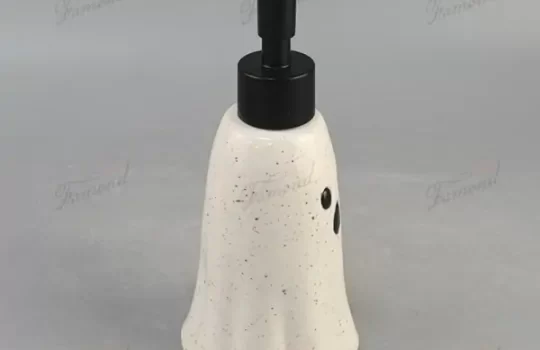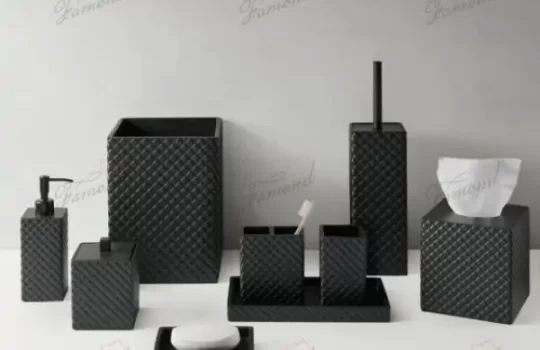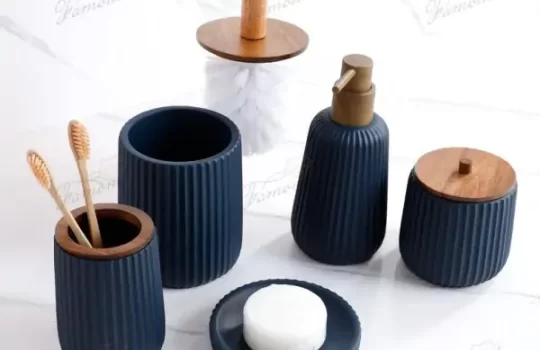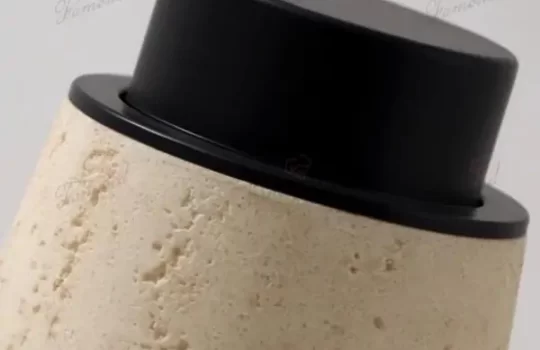GRS Resin vs. Conventional Resin: Sources, Composition, Processing, and Environmental Sustainability
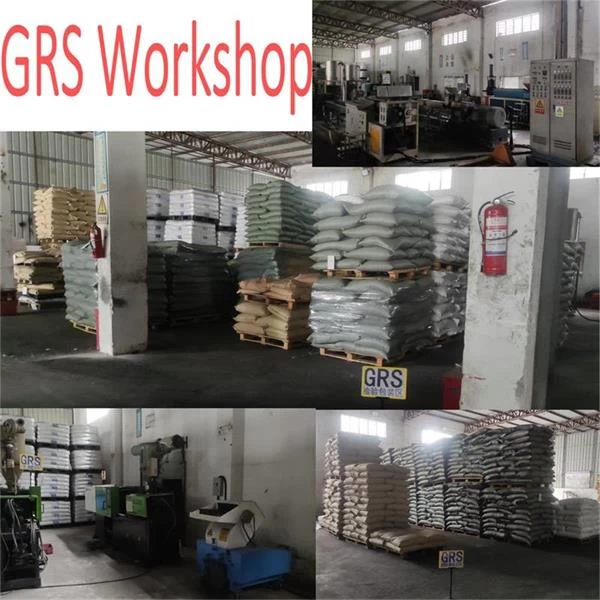
In today’s world, where environmental consciousness is on the rise, both businesses and consumers are increasingly focused on sustainable and eco-friendly products. At Famondhome, we understand the importance of this shift. This article will explore the differences between GRS resin and conventional resin in terms of sources, composition, processing, and environmental sustainability, while highlighting Famondhome’s commitment to these values.
1. Sources and Composition
Conventional Resin:
Sources: Conventional resins are primarily derived from petroleum or other fossil fuels.
Composition: Common components include Polyethylene Terephthalate (PET), Polyethylene (PE), and Polypropylene (PP). These materials are typically first-generation, virgin materials.
GRS Resin:
Sources: GRS resin is sourced from recycled plastic waste, such as post-consumer plastic bottles and bags, as well as industrial waste generated during production processes.
Composition: The recycled materials are processed into new plastic pellets. The common components are the same as those found in conventional resins—PET, PE, and PP—but they have been through one or multiple recycling cycles.
2. Processing Methods
Conventional Resin:
Raw Material Preparation: Monomers like terephthalic acid and ethylene glycol are extracted from petroleum.
Polymerization: Chemical reactions combine monomers into long polymer chains.
Molding: The polymers are shaped into the desired forms using processes like extrusion and injection molding.
Post-Processing: Steps may include cooling, cutting, and packaging.
GRS Resin:
Raw Material Collection: Recycled plastic waste is collected and sorted to remove impurities.
Cleaning and Shredding: The waste is cleaned to remove labels, caps, and other non-plastic parts, then shredded into small pieces.
Melting and Extrusion: The shredded material is heated until it melts and then extruded into uniform pellets.
Post-Processing: Cooling, sieving, and packaging ensure the final product meets quality standards.
3. Environmental and Sustainability Benefits
Conventional Resin:
Environmental Impact: The production process requires significant energy and chemicals, often resulting in wastewater, air pollution, and other environmental issues.
Social Responsibility: Social responsibility standards can vary widely depending on the region and regulatory environment.
GRS Resin:
Resource Conservation: By using recycled materials, GRS resin reduces the demand for petroleum and other fossil fuels, helping to preserve natural resources.
Carbon Emissions Reduction: Using recycled materials significantly reduces greenhouse gas emissions. For example, recycling one ton of PET plastic can save approximately 1.5 tons of CO2.
Pollution Reduction: The production of GRS resin generally involves fewer chemical reactions and pollutant emissions, reducing water, air, and soil contamination.
Circular Economy: GRS resin promotes a circular economy by recycling and reusing plastic waste, extending the life cycle of plastic materials.
Social Responsibility: GRS certification requires companies to implement effective environmental management systems and adhere to strict social responsibility standards, including employee health and safety and compliance with international labor organization guidelines.
Famondhome’s Commitment:At Famondhome, we are dedicated to providing high-quality home decor and bathroom accessories while prioritizing environmental sustainability. We hold certifications such as BSCI, GRS, and SEDEX, ensuring that our products meet the highest standards of quality and ethical production.
Our product range includes lotion pumps, rollers, toothbrush holders, cotton jars, tissue box covers, toilet brush holders, towel racks, mirrors, trash cans, home decor items, pet accessories, and garden decorations. We serve a diverse clientele, including renowned retailers and brands like Walmart, Target, Ross, Ridder, Kleine Wolke, Zara, BM, Casa, ECI Home Goods, Avanti, Envouge, and Hut.
To learn more about our products and services, visit our website at Famondhome or contact us at [Jane@famondhome.com]. Let’s work together to create a more sustainable future.


